Domestic law and IHL
For IHL treaties to be universally accepted, all states must adopt them through ratification or accession. States must then enact legislation and take practical measures in order for the rules to be …
For IHL treaties to be universally accepted, all states must adopt them through ratification or accession. States must then enact legislation and take practical measures in order for the rules to be …
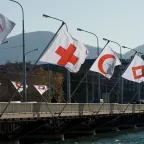
International law regulates the methods and means of warfare. There are restrictions on weapons, on their use and on conduct. The principle of distinction requires parties to distinguish between …
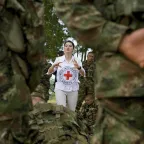
War affects women, men, girls and boys differently. Taking account of these differences when applying international human law will result in better protection for all. A gender perspective on …
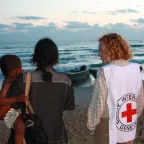
While space objects have been employed for military purposes since the dawn of the space era, the weaponization of outer space would increase the likelihood of hostilities taking place there, with …
The red cross, red crescent and red crystal emblems provide protection for military medical services and relief workers in armed conflicts. National Societies in each country also use the emblems for …
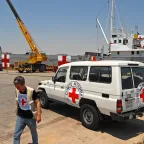
Rape and other forms of sexual violence are prohibited in armed conflict under international humanitarian law. The ICRC works to prevent this crime and support survivors . Sexual violence and the law …
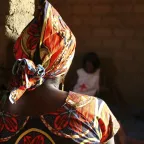
Created in 1863, the ICRC’s library represents alongside the ICRC’s archives the essential documentary reference on our organization and international humanitarian law. Our main resources ICRC …

We protect people affected by war and armed conflict by advocating for their rights and providing life-saving assistance – at all stages of hostilities. We also work to minimize the vulnerabilities …

Humanity, impartiality, neutrality, independence, voluntary service, unity and universality: these are the Fundamental Principles that guide and define our work. The seven Fundamental Principles …
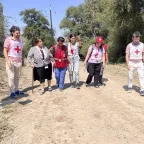
Over the past two decades, states and international organizations have increasingly resorted to sanctions and counter-terrorism measures to attempt to change the behaviour of designated individuals …

Try one of the following resources:
Created in 1863, the ICRC library, alongside the ICRC archives, provides an indispensable documentary reference on the organization itself and international humanitarian law.
International humanitarian law is based on a number of treaties, in particular the Geneva Conventions of 1949 and their Additional Protocols, and a series of other instruments.
Customary international humanitarian law consists of rules that come from "a general practice accepted as law" and that exist independent of treaty law.